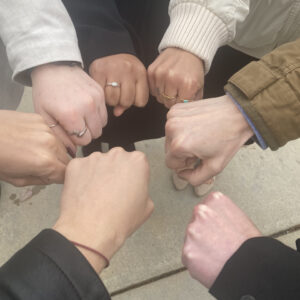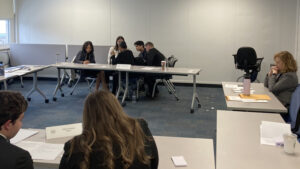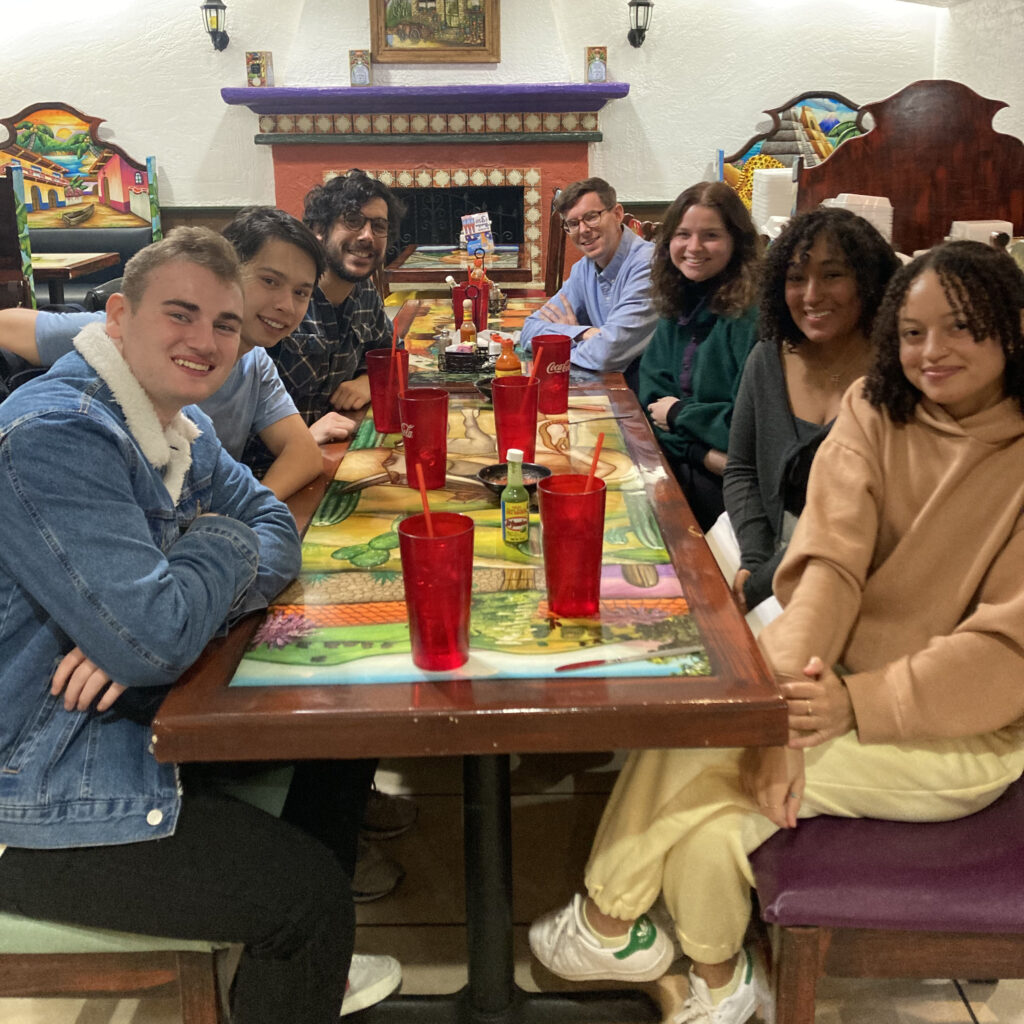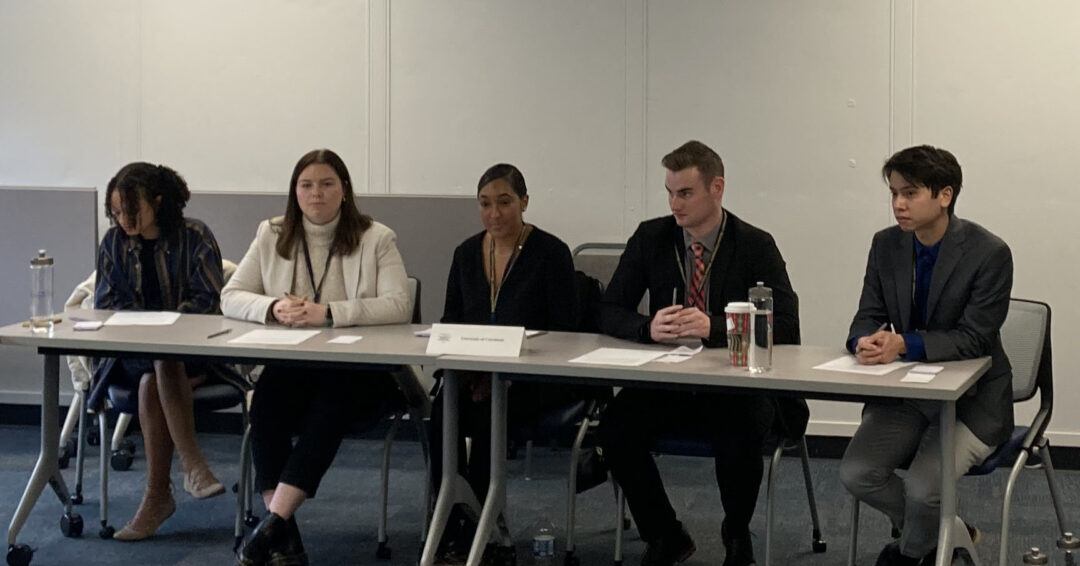 Students enrolled in PHIL 3015, instructed by doctoral student Vincent Del Prado, represented the University of Cincinnati (UC) at the Association for Practical and Professional Ethics (APPE) 2022 Intercollegiate Central States Regional Ethics Bowl competition held at Marian University on November 11. Assisted by Kyle Yrigoyen, Vincent and his team of five students arrived in Indianapolis, ready to take on 21 other experienced teams. Their path to an 8th place finish was an arduous one as by some strange twist of fate, the team’s qualifying rounds paired them against the schools that ultimately placed third, second, and first, respectively, in the overall competition!
Students enrolled in PHIL 3015, instructed by doctoral student Vincent Del Prado, represented the University of Cincinnati (UC) at the Association for Practical and Professional Ethics (APPE) 2022 Intercollegiate Central States Regional Ethics Bowl competition held at Marian University on November 11. Assisted by Kyle Yrigoyen, Vincent and his team of five students arrived in Indianapolis, ready to take on 21 other experienced teams. Their path to an 8th place finish was an arduous one as by some strange twist of fate, the team’s qualifying rounds paired them against the schools that ultimately placed third, second, and first, respectively, in the overall competition!
In the first round, UC took on the reigning Regional Champions, Youngstown State, who has also won the Central States tournament four years in a row; five of the last six. They drew the case Learning to Live with Your Demons, a case about schizophrenia and the utility and morality of anti-psychotic medication. Their response drew almost a perfect score, 57 out of 60, from one of the three judges: the highest overall score in the round. Unfortunately, the remaining two judges gave higher scores to Youngstown State. The Youngstown coach shared he was impressed with how UC managed to rise to the challenge of a more detailed and divergent question. Overall, it was an incredible round of Ethics Bowl against one of the very best (and most imposing) programs in the country.
In the second round the team argued that the principles of bioethics apply to healthcare workers, and therefore hospital administration and the healthcare system would bear responsibility for fatal medical accidents. Their position was a slick rhetorical move, and their organized presentation was greatly motivated by empirical reasons. Using real-world examples, they referenced the fact that only 20-30% are unionized to support their argument that overworking equals more accidents. Though their arguing was sound, and their position backed, it did not garner a majority vote amongst the three judges.
 Despite being a little tired and weary the team got together, reflected upon their strengths, and charged into their third-round match, which pit them against Taylor University, the school that won the entire championship. The round had many exceptional highlights. One judge, a retired cyber security professional, responded favorably to the team’s presentation on a case that involved Twitter’s censorship and content moderation practices.
Despite being a little tired and weary the team got together, reflected upon their strengths, and charged into their third-round match, which pit them against Taylor University, the school that won the entire championship. The round had many exceptional highlights. One judge, a retired cyber security professional, responded favorably to the team’s presentation on a case that involved Twitter’s censorship and content moderation practices.
UC’s team was made up of students working part- and full-time jobs, juggling multiple majors, applying to law and medical schools. Vincent told them “You cannot guarantee outcomes in a judged competition; focus on doing your personal best and leave with a performance that you are proud of.” He felt they did just that! “Everyone on the team showed extraordinary composure. Each member made sophisticated argumentative moves, whether it was a decisive objection that addressed the other team’s position in detail, a series of poignant examples to support our arguments, or a dexterous grasp of moral theory.”

This was UC’s third time competing in the APPE Intercollegiate Regional. The 22 teams came from a total of 18 schools, so their finish placed UC 7th amongst the schools. Only the top four teams advanced to the National Championship, so UC will have to wait for the 2023 season to regain the National Champions crown they earned in 2020.
PHIL 3015 is an elective course offered in the College of Arts and Sciences. Sophomore students and above from all disciplines are encouraged to register for the class, which will teach concepts and provide tools to hone moral reasoning skills that can help them navigate through all facets of their career and life. During the fall semester students can be part of the UC team traveling to compete in the APPE Regional and if that team qualifies for the National competition students enrolled in the Spring course will travel and compete for the National Championship. If the team does not qualify, they participate in the National Bioethics Bowl which is held every April.
The Cincinnati Ethics Center sponsors the PHIL 3015 by funding the instructor’s graduate assistantship and travel to the various competitions.


